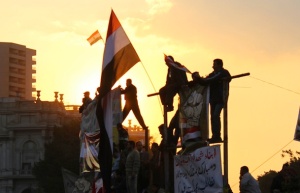Following pressure from the US Government, Canada is preparing to ram through a revamped copyright bill that will have disastrous consequences for consumers.
Michael Geist, prof. E-commerce Law in Ottawa, previously describedthe bill as “the most anti-consumer copyright bill in Canadian history.”
When the new bill passes it will open the door for widespread interception and monitoring of Internet users. To protect Canadians from these ‘rights violations” the Pirate Party Canada will soon launch a VPN service.
With this VPN Canadians can protect themselves, and at the same time the also help people in other countries where Internet censorship is rampant. Previously, Pirate Party Canada already provided citizens of Tunisia with free VPNs when the Government censored the Internet there.
“We will provide VPN service to Canadians at a rate of 10$/ 200GB. For every paid account we open, we will also provide a free VPN account to a citizen of a nation with censored Internet,” Said party leader Mikkel Paulson today.
“This allows us to simultaneously provide protection to Canadians and expand our humanitarian support abroad. No logs will be kept of the activity, although we will of course cooperate with law enforcement in the event of abuse of our services.”
The Pirate Part VPN will be released to the public soon, more details will come available in the coming days.
There is no better way to fly – Book now
Related Articles
- Pirate Party of Canada Promises VPN For Freedom (yro.slashdot.org)
- Canadian Pirate Party Launched a VPN for Repressed Countries (crenk.com)
- Pirate Party to launch VPN in Canada (thenextweb.com)
- Pirate party fights Internet monitoring (canada.com)
- VPN and SSL – Expert Held Needed! (ask.metafilter.com)
- China: PPTP and L2TP VPN protocols blocked (advocacy.globalvoicesonline.org)
- VPN Support, File Manager Features Being Added into Chrome OS UI (thechromesource.com)
- What You Need to Know about Branch Networking: High Availability (vpnhaus.ncp-e.com)
- What is the difference between Norton Anti-Spyware Scan Tool Bar … (spinsafe.com)
- VPN Connections for Android Free Download (mydigitallife.info)








